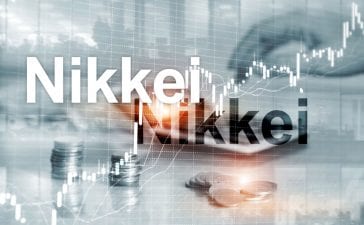The Nikkei added nearly 4% to its highest level since mid-April while the Topix jumped nearly 3% to a level not seen since 1990
The Japanese stock market soared following Prime Minister Yoshihide Suga’s abrupt departure, with the broad Topix index reaching 31-year highs.
Since Suga’s shock announcement, the Nikkei has added nearly 4% to its highest level since mid-April while the Topix jumped nearly 3% to a level not seen since 1990, even though there is no clear front-runner. The Liberal Democratic Party’s (LDP) majority in parliament guarantees the winner will become prime minister.
Basically his party, the LDP, is market-friendly, but Suga is not well liked due to the handling of the pandemic, said Dave Wang, a portfolio manager at Nuvest Capital in Singapore.
With him stepping down, LDP’s chances of winning lower house elections later this year go up, and markets are happier, Wang said.
As Suga’s departure removes a major source of concern for Japanese markets, market participants say they expect Japanese shares to catch up to other stock markets, given the steady rise in Corporate Japan’s earnings.
World stock prices have soared 15% so far this year, reaching record highs, on hopes of a strong global economic recovery from the COVID-19 pandemic, compared with 8% gains in the Nikkei.
Many investors regard vaccine minister Taro Kono and former foreign minister Fumio Kishida as two leading candidates.
Kono is seen as a reformist and could be positive for stocks while there are some uncertainties on Kishida given his penchant for fiscal tightening. But these views could change depending on the policies they adopt, said Ryota Sakagami, chief equity strategist at JPMorgan Securities.
Kishida has called for the reduction of income disparities, pledged support to the economically vulnerable, and said an economic stimulus package worth “tens of trillions of yen” was needed to combat the coronavirus.
Kono is thought to focus more on pro-business policies such as deregulation, while Takaichi, a member of the party’s most conservative wing, has said she wants to work towards achieving 2% inflation.
For the time being, dealing with the coronavirus and economic normalisation would be the top priority for anyone and therefore their policy differences will probably not become evident, said Sakagami.





